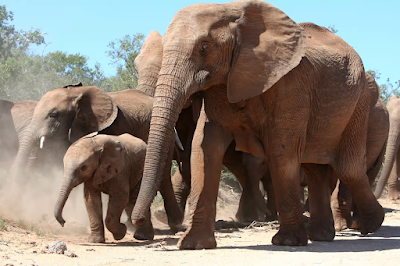An exciting new study from an international team of scientists has shed some light on exactly why elephants, one of the biggest animals on the planet, paradoxically experience unusually low rates of cancer. The research found these remarkable mammals carry unique genetic variants that reduce their risk of tumors, and the findings could help develop new cancer therapies for humans.
As an organism grows older, and its cells continue to replicate, the chances of cancerous mutations increase. And the bigger the organism, the more cells it has, so the more chances for mutations, and the higher risk for cancer as it ages. Right?
Within individual species this observation has held true. From taller humans to bigger dogs, cancer risk has been found to positively correlate with body size. So in theory big animals that live long lives should experience higher rates of cancer than smaller, short-lived organisms.
But this hasn’t been found to be the case, and the discordancy is known as “Peto’s Paradox” after epidemiologist Richard Peto, who discovered per-cell carcinogenesis rates were not consistent between species. In fact, in some larger species such as whales and elephants there seemed to be very little evidence of cancer at all, despite being massive and living long lives.
While it is generally understood that each species has evolved its own unique abilities for suppressing cancer, elephants have been of particular interest to researchers. These animals have similar lifespans to humans yet, despite their size, show little signs of cancer, even in very old age. It has been estimated as little as five percent of elephants ultimately succumb to cancer, compared to 25 percent of humans.
A landmark study a few years ago homed in on one of the key ways these massive mammals may be avoiding cancer. Elephants seem to have 20 different copies of a tumor-suppressing gene known as p53.
This gene encodes a protein, also known as p53, which serves as a crucial cell protector. This protein acts a bit like a guard whose job is to stop a cell dividing when it detects any DNA damage or mutation.
When the p53 gene is not working properly damaged cells can multiply and cancerous tissue accumulates. Dysregulation of the gene is thought to play a role in more than half of all human cancers, but unlike elephants, we only have one copy of the gene.
This new research set out to investigate exactly how the variety of p53 genes in elephants suppress cancer.
“This intricate and intriguing study demonstrates how much more there is to elephants than impressive size and how important it is that we not only conserve but also study these signature animals in minute detail,” explained study co-author Fritz Vollarth, from the University of Oxford. “After all, their genetics and physiology are all driven by evolutionary history as well as today’s ecology, diet and behavior.”
The activity of p53 in a cell is regulated by another gene known as MDM2 that encodes a protein that essentially inactivates the p53 protein.
This p53–MDM2 pathway is fundamental to the workings of healthy cells – p53 stepping in to check the health of a cell, and MDM2 stopping p53 from triggering cell death by sending a signal to say everything is working fine. The new research found elephants have an incredible array of different p53 proteins that can increase the ways around MDM2 inactivation.
In humans, because we only have one copy of the p53 gene, it doesn’t take much for MDM2 to take over and allow cancerous cells to replicate. But in elephants the p53 protein takes on dozens of different molecular shapes, avoiding inactivation by MDM2, and stopping the replication of so many more cancerous cells.
“This is an exciting development for our understanding of how p53 contributes to preventing cancer development,” said study co-author Robin Fåhraeus. “The existence of several p53 isoforms in elephants with different capacities to interact with MDM2 offers an exciting new approach to shed new light on p53’s tumor suppressor activity.”
The new study presents impressive new insights into the mechanisms evolved by elephants to avoid cancer. As well as demonstrating how these massive mammals deploy different p53 molecules to suppress the growth of cancerous cells, the study helps somewhat resolve Peto’s Paradox by affirming elephants do have more ways to avoid cancer compared to smaller organisms.
Beyond these academic insights there are also likely to be human clinical outcomes from this new research. By highlighting dozens of novel ways p53 molecules can be activated researchers are now presented with a number of new pathways for targeted cancer therapies in humans.
The new study was published in the journal Molecular Biology and Evolution.
Source: University of Oxford

No comments:
Post a Comment